Michael Jackson
Michael Jackson’s Triumphant Chart Return, New “Love Never Felt So Good” Music Video & MORE!
Published
12 years agoon
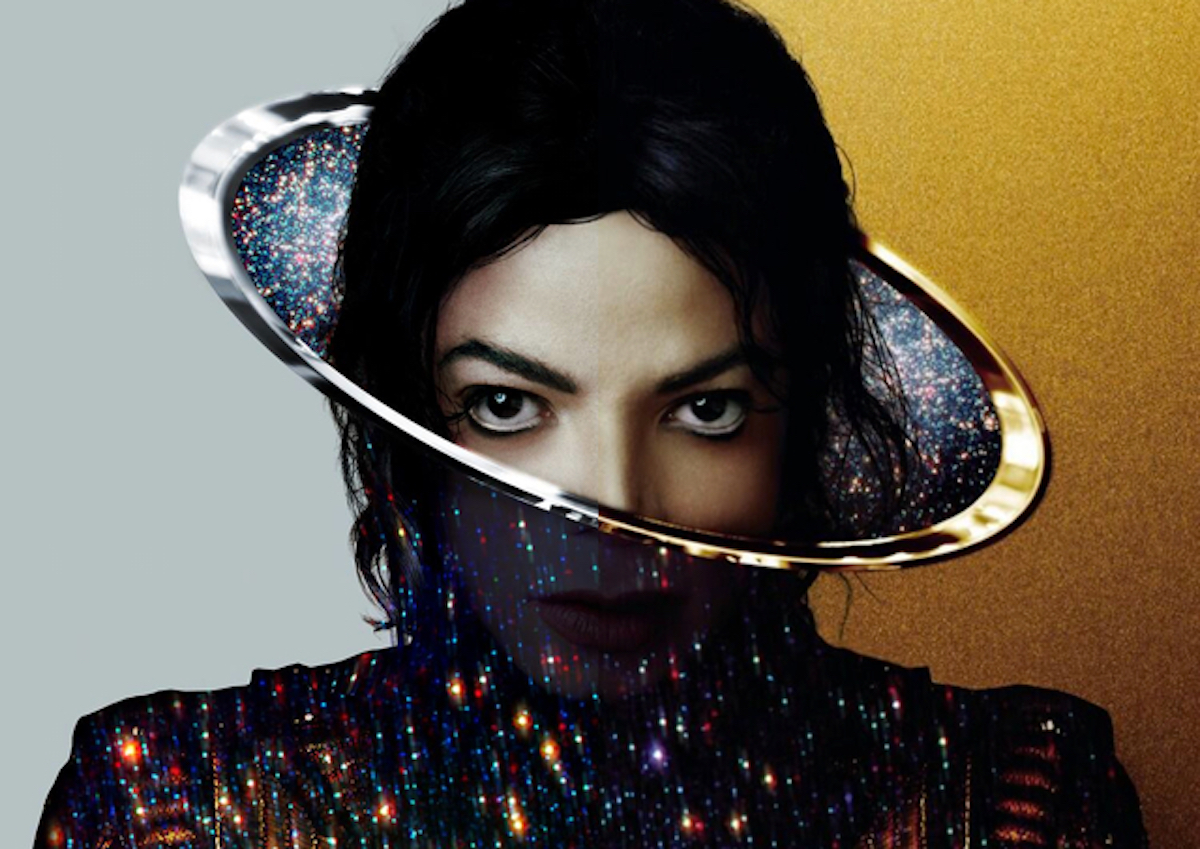
The King of Pop returned to the U.S. charts in triumphant fashion today with the newly-released single “Love Never Felt So Good” debuting on at #20 on the Billboard Hot 100.
The track, which is available in two versions – one a solo rendition and the other a duet with superstar Justin Timberlake – was released on the evening of May 1 after it premiered on the iHeartRadio Music Awards during a special dance tribute featuring Usher.
“Love Never Felt So Good” went on to sell more than 80,000 digital downloads in the three days following, while racking up 1.9 million U.S. streams, and an additional 2 million in other countries around the world, during that time. The track has achieved upwards of 7 million streams around the world to date.
Much of the track’s instantaneous success has to be attributed to Justin Timberlake, who has been involved in a series of major promotional moves including multiple tweets to his 32 million followers, Instagram posts and a 15-minute live-on-air U.S. radio interview with Ryan Seacrest focused specifically on Michael Jackson.
As a result of Timberlake’s involvement in the promotional campaign approximately 65,000 of the 80,000 digital downloads were attributed to the MJ and JT duet version of the track. Entering the charts at #20 means the track becomes the King of Pop’s equal-third-highest Hot 100 debut ever – bettered only by “You Are Not Alone” which debuted at #1 and “Scream” at #5. The song “Thriller” also debuted at #20.
The track, which has spent the majority of the past week in the Top 10 Songs chart on iTunes Stores all around the world, has also been strongly supported by Clear Channel-owned radio stations – some of which have the track spinning on the hour, every hour. It reach an audience of 34 million for the week ending May 6, from 358 stations, according to Nielsen BDS. It’s Jackson’s 49th Hot 100 hit (not counting his entries as part of the Jackson 5), and his 33rd top 20 Hot 100 hit.
To keep the momentum rolling for “Love Never Felt So Good” a music video will be released shortly featuring dancers performing mega-mix of Jackson’s iconic dance routines, with him, in a choreographed audio-visual work of art. Justin Timberlake is also said to be appearing in the video clip, which is being set to the duet version of the track. It is not clear as to whether Timberlake, who is currently on tour in Europe, will film fresh new content for the video, or whether footage from his previously-released videos will be incorporated.
Additionally, a deal between Chrysler Group LLC and Epic Records has been struck that will see “Love Never Felt So Good” featured in the upcoming summer advertising campaign to promote Jeep.
“Jeep is an American icon as much as Michael Jackson is an American icon,” said Mr. Francois, who also serves as head of the Fiat brand. “Jeep is timeless as much as Michael Jackson is timeless.”
The campaign should help keep the single, and the ‘XSCAPE’ album from which it comes, in the limelight for an extended period. What’s funny is that in one track from the album Jackson sings about a Jeep. The only problem; Jackson’s Jeep gets a flat tyre and he has to pull over for help. The song is called “A Place With No Name”.
And to top it all off, it has just been announced that Michael Jackson will “create another slice of history at this year’s Billboard Music Awards.”
The Estate of Michael Jackson created the spot, which will present the superstar “like you’ve never seen him before,” during the awards ceremony on Sunday, May 18.
“On what already promises to be one of the year’s stand-out music events, the 2014 BBMAs raise the bar even higher with a world premiere experience featuring the late King of Pop,” reads the article. “It’s sure to be a thriller, but the finer details remains under lock-and-key.”
Speculation has already begun to swirl that extravagantly expensive state-of-the-art technology will be used to put Jackson centre-stage via 3D hologram projection – an controversial concept that, when discussed, draws a mixed reaction from Jackson’s fans around the world. Adding fuel to that rumour is the involvement in the Billboard event of choreographer and director Jamie King.
King is currently the director for both Michael Jackson Cirque du Soleil shows – ‘Immortal’ and ‘ONE’ – and it just so happens that ‘ONE’ currently use hologram technology during their theatre show at Mandalay Bay.
The only issue is that the hologram in ‘ONE’ has been created using footage of a Jackson impersonator – choreographed especially for the show to interact and dance with the live onstage performers. That might fly somewhat under the radar when being incorporated into an intimate 90-minute theatre production, but when the special appearance is advertised as being “Michael Jackson” himself, to promote the new album of Michael Jackson songs, you’d better make sure it’s the Michael Jackson and not a rip-off.
The Billboard Music Awards are held at the MGM Grand Garden Arena in Las Vegas on Sunday May 18, and will be broadcast live by ABC. All will be revealed then!
UPDATE: The hologram was indeed performed by an impersonator.
Damien Shields is the author of the book Michael Jackson: Songs & Stories From The Vault examining the King of Pop’s creative process, and the producer of the podcast The Genesis of Thriller which takes you inside the recording studio as Jackson and his team create the biggest selling album in music history.

You may like
-
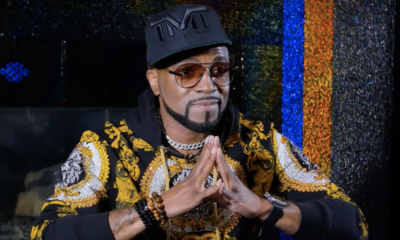

Producer Teddy Riley Comes Clean Regarding Fake Songs From Posthumous Michael Jackson Album
-
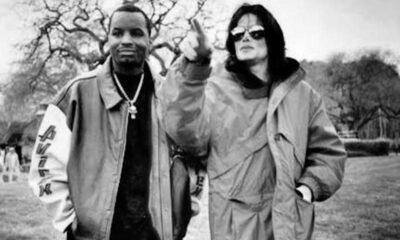

Michael Jackson Meets America in Invincible Album Outtake ‘A Place With No Name’
-
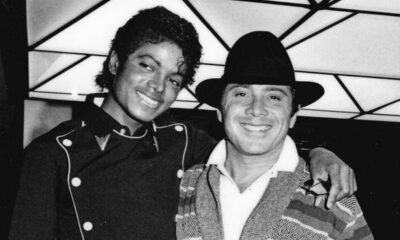

Love Never Felt So Good and Michael Jackson’s Work with Paul Anka
-
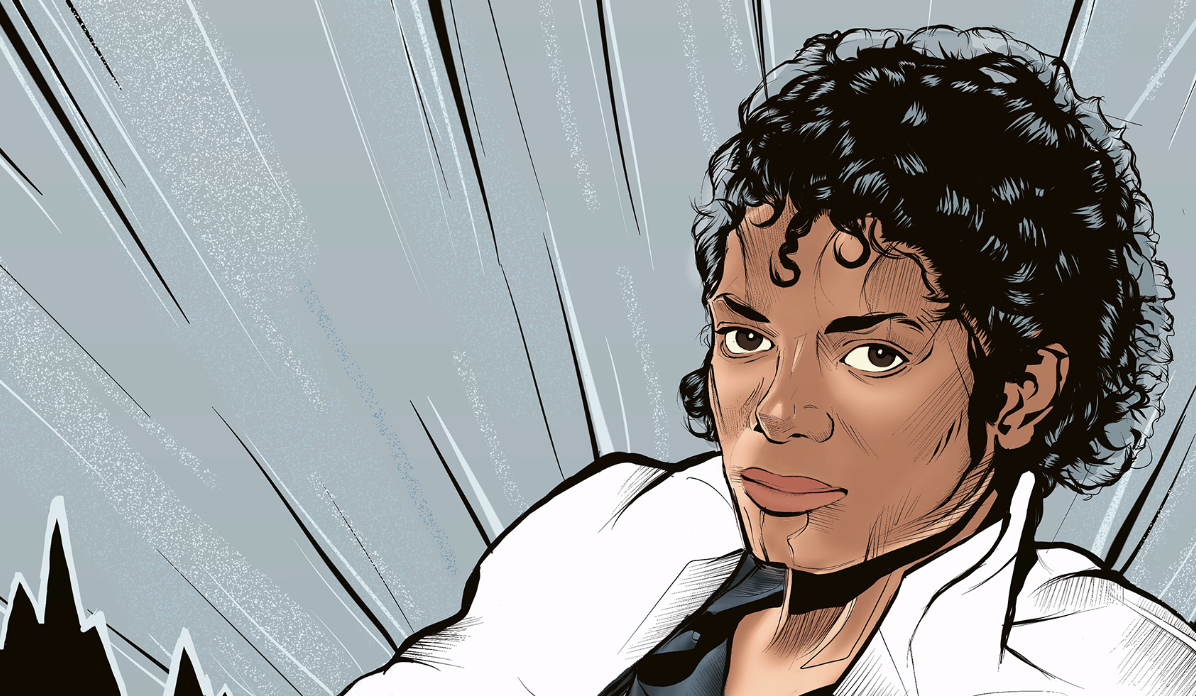

The Genesis of Thriller – A Michael Jackson Podcast Documentary
-
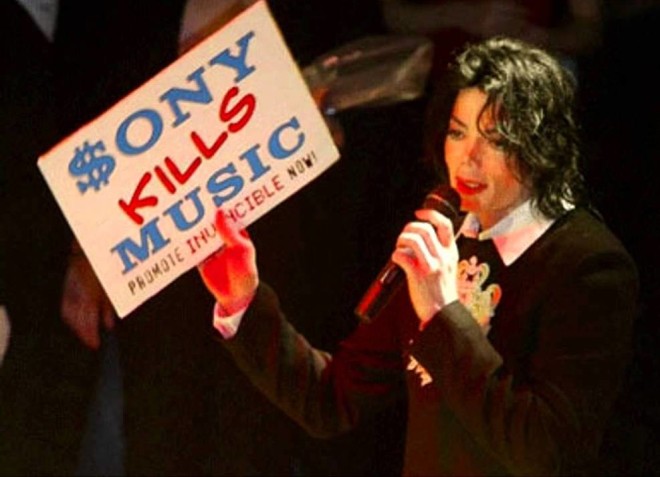

BREAKING: Court Rules Sony Music Can Sell Fake Songs Under Michael Jackson’s Name
-
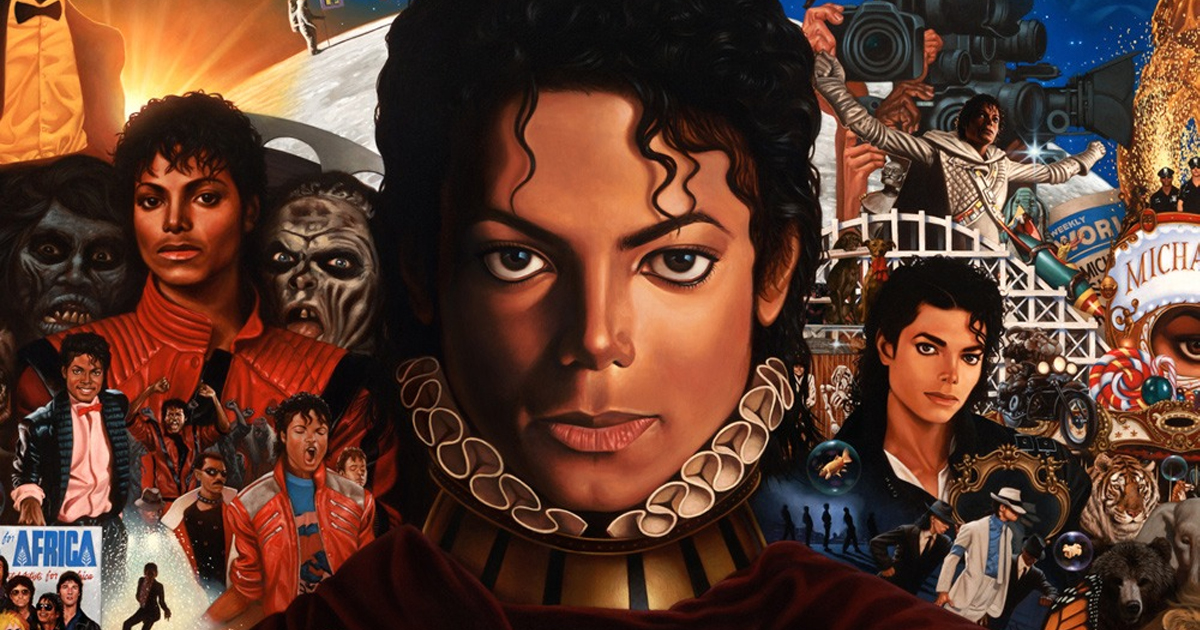

Partnership Between Sony Music and Michael Jackson’s Estate Renewed Amidst Ongoing Fraud Lawsuit
15 Comments
Leave a Reply
Cancel reply
Leave a Reply
Cascio Tracks
First Amendment Coalition to Support Sony and the Jackson Estate in Fake Songs Lawsuit
Published
5 years agoon
February 9, 2021
There has been yet another twist in the class action lawsuit filed by Californian consumer Vera Serova against Sony Music and the Estate of Michael Jackson regarding three allegedly fake songs commercially released on the 2010 Michael album.
In documents filed with the California Supreme Court yesterday, an organisation called The First Amendment Coalition has requested permission to file an amicus brief in support of Sony and the Estate’s purported constitutional right to sell fake songs as authentic Michael Jackson material.
FAC’s request comes after four separate amici were filed in support of plaintiff Serova by several consumer protection groups along with the California Attorney General’s Office.
All previously filed briefs support Serova’s assertion that this is a straightforward case of false advertising, and that billion-dollar corporations should not be able to commercially label fake art as authentic.
They also assert that by filing an anti-SLAPP motion against Serova, Sony and the Estate misappropriated a statute which is supposed to protect the general public against the limitless resources of wealthy corporations, and to prevent those corporations from intimidating the public into abandoning legal action against them.
Nine consumer protection organisations stated in a joint filing that Sony and the Estate have misused the anti-SLAPP statute to achieve the exact opposite of its intended purpose.
But according to documents filed yesterday, The First Amendment Coalition believes that if the Supreme Court rules in plaintiff Serova’s favour, and if a precedent is set that Sony and the Estate cannot sell fake songs as authentic Jackson material, it could have “significant implications for many different First Amendment contexts beyond the particular circumstances of this case.”
In this case, Sony asserts that they should not be held accountable for the statements made on the Michael album cover and in their television commercial, because those statements were “noncommercial” in nature. Rather, they argue, those statements are merely their contribution to the ongoing public debate about whether the vocals on three of the songs were authentic or fake, and that this makes it free speech under the First Amendment.
FAC has indicated that they will stand with Sony on this matter.
According to the mission statement published on their website, FAC is a nonprofit public interest organisation dedicated to “advancing free speech” and “public participation in civic affairs.”
By definition, public participation in civic affairs is a process in which members of society take collective action to address issues of public concern.
This begs the question: Is the definition of FAC’s mission more appropriately applied to a multi-billion dollar corporation’s purported right to claim that a commercial product is legit, when in fact it is fake? Or to a member of the public who seeks to take collective action to address the issue of that multi-billion dollar corporation falsely advertising that same product to millions of unwitting consumers?
Despite Sony and the Estate’s best efforts to stop her, the plaintiff in this case (Miss Serova) is a member of society who is attempting to take collective action (by filing a class action lawsuit) to address an issue of public concern (that a corporation may be defrauding consumers).
Moreover, FAC’s mission statement also claims to advocate for a “more open and accountable government” and “the people’s right to know”.
It should be noted that the Californian government is in fact advocating for openness and accountability and for the public’s right to know in this case – on behalf of the plaintiff, against the billion-dollar corporation that has conceded in its legal arguments to have ripped her off.
For the purposes of this proceeding, defendants Sony and the Estate have stipulated that the songs in question are indeed fake. And while their exact arguments aren’t due to be filed with the court until March 10, 2021, in the context of the defendants’ concessions, FAC could, in theory, be perceived to be advocating in favour of fraudulent representation of forged art, rather than for openness and accountability and the people’s right to know.
In a press release issued on January 29, 2021, the California Attorney General said:
“Products must deliver on their claims. If someone buys an album from a recording artist, they should expect that the songs on the album were made by that artist unless noted otherwise… We must hold companies accountable to stand by their products. Companies have a First Amendment right to communicate, but their claims must be informed and accurate.”
More to come when FAC files their amicus brief.
A podcast series called Faking Michael is in the works, detailing a decade-long investigation of this case. You can subscribe to Faking Michael on Apple Podcasts, Spotify and YouTube.
Damien Shields is the author of the book Michael Jackson: Songs & Stories From The Vault examining the King of Pop’s creative process, and the producer of the podcast The Genesis of Thriller which takes you inside the recording studio as Jackson and his team create the biggest selling album in music history.

Cascio Tracks
Californian Government Joins Fraud Lawsuit Against Sony Music and Jackson Estate
Published
5 years agoon
January 30, 2021
The California state government has officially joined a class action lawsuit against Michael Jackson’s estate and record company.
In a press release issued yesterday, the state’s Attorney General, Xavier Becerra, accuses Sony of “shirking responsibility” for making “false and misleading claims” about a posthumously released Michael Jackson album, and then declaring ignorance of their misrepresentation.
The Attorney General also filed an amicus brief with the California Supreme Court, urging them to intervene in the case of Serova vs Sony Music Entertainment, et al., for fear that “broad, destabilising consequences for well-established false advertising principles,” could be felt if it did not take action and rectify a problematic Appeals Court decision in the case.
The lawsuit at the centre of the amicus brief was filed almost 7 years ago. The suit alleges that Sony Music and the Jackson Estate misled consumers when they commercially released the Michael album, comprising 10 tracks, in December 2010.
The plaintiff in the case, Vera Serova, insists that three of the 10 tracks on Michael are part of an elaborate artistic fraud masterminded by co-defendants Eddie Cascio and James Porte, who sold the tracks to Jackson’s Estate for millions of dollars after the superstar’s death.
Serova alleges that those three tracks, known as the Cascio tracks, are fakes sung by an impostor. And she’s not alone.
Months before the album was released, members of the Jackson family warned Sony and the Estate regarding the Cascio tracks, insisting that they were fakes and should not be released. One of the Estate’s co-executors, John McClain, agreed with the Jackson family.
In response, Sony issued a press release stating that they had “complete confidence in the results of their extensive research” that the vocals were authentic. The company then released the album, including three Cascio tracks, against the family’s wishes.
Sony even went as far as to explicitly inscribe on the album cover that the vocals on all the album’s tracks were “performed by Michael Jackson.”
But despite Sony’s repeated assurances that the vocals were legit, when Jackson’s fans got their hands on the album and heard the Cascio tracks for themselves, a huge controversy ensued. Thousands upon thousands of fans around the world instantly rejected them as fakes.
Ironically, this very controversy – which Sony itself created by releasing the Cascio tracks – is one of the many points the company has since tried to raise as a get-out-of-jail-free card.
Sony says that because thousands of people were questioning the authenticity of the vocals, the company’s claim that Jackson sang them was not commercial in nature, but merely their non-commercial contribution to the ongoing authenticity debate.
But the Attorney General argues that Sony’s logic is absurd. The fact that there were questions over the vocals, the AG says, only increased Sony’s need be sure that the songs were indeed authentic if they intended on claiming they were:
“Questions about the authenticity of songs allegedly recorded by Michael Jackson shortly before his death naturally led to significant interest and debate among fans, members of the media, and the public more generally. That level of interest made it all the more important for Sony to provide accurate information about the songs to consumers.”
The AG added: “It would seriously frustrate the State’s interest in combating false or misleading advertising to immunise a seller from liability merely because its claims bear some relation to a matter of public interest or a public figure.”
Moreover, the Attorney General completely rejects Sony’s claims that their speech wasn’t commercial in nature.
Because the album cover explicitly stated that the songs were “performed by Michael Jackson,” Sony was bound to that statement as being the truth, and could be held liable under consumer protection laws if it were proven otherwise.
“A seller’s description of a product on a label or in an advertisement is a classic form of commercial speech. Thus, assuming Serova’s allegations are true, application of California’s false advertising statutes fully comports with the First Amendment.”
In the press release issued yesterday to alert the media of the California state government’s support of Serova’s lawsuit, Attorney General Becerra said:
“Products must deliver on their claims. If someone buys an album from a recording artist, they should expect that the songs on the album were made by that artist unless noted otherwise… We must hold companies accountable to stand by their products. Companies have a First Amendment right to communicate, but their claims must be informed and accurate.”
Sometime in mid-February the Los Angeles City Attorney’s Office is due to join the California Attorney General and the nine other consumer protection groups already supporting Serova’s case. No amicus brief has been filed in support of Sony or the Jackson Estate.
A date for the oral hearing of these briefs is yet to be set.
A podcast series called Faking Michael is in the works, detailing a decade-long investigation of this case. You can subscribe to Faking Michael on Apple Podcasts, Spotify and YouTube.
Damien Shields is the author of the book Michael Jackson: Songs & Stories From The Vault examining the King of Pop’s creative process, and the producer of the podcast The Genesis of Thriller which takes you inside the recording studio as Jackson and his team create the biggest selling album in music history.

Cascio Tracks
Fake Michael Jackson Songs Lawsuit Boosted by Support from Consumer Protection Groups
Published
5 years agoon
December 14, 2020
A legal quest for justice over a posthumous Michael Jackson album including 3 allegedly-fake songs has received a serendipitous boost on the 10th anniversary of the album’s release.
On Friday, December 11, 2020, the Berkeley Center for Consumer Law and Economic Justice filed an amicus curiae brief with the California Supreme Court in support of plaintiff Vera Serova’s ongoing class action consumer fraud lawsuit against Sony Music and the Estate of Michael Jackson.
The powerfully-worded brief was co-signed by 8 additional consumer protection organisations. Click here to read it in full.
Serova’s lawsuit, filed in 2014, alleges that Sony and the Estate misled her and millions of consumers when they commercially released the Michael album on December 14, 2010 – exactly ten years ago today.
The lawsuit alleges that three songs on the album are forgeries sung by an impostor vocalist, and that Sony and the Estate falsely advertised those songs to consumers as authentic Jackson material.
The three songs at the centre of the lawsuit – Breaking News, Monster and Keep Your Head Up – were originally co-written and produced by Eddie Cascio and James Porte, who are co-defendants in the fraud component of the case.
The consumer protection organisations wrote in their joint filing on Friday that Serova’s is a “straightforward case of deceptive advertising.”
Yet the case has been in legal limbo for more than four years.
Back in 2016, Sony and the Estate filed an anti-SLAPP motion against Serova, claiming that her lawsuit was a ‘strategic lawsuit against public participation’ (SLAPP) intended to deny the billion-dollar corporations their purported constitutional right to sell fake songs as authentic Jackson material.
For the purposes of their legal arguments, Sony and the Estate conceded that Jackson was not the singer of the three songs in question. To be clear, this was not an outright admission that Jackson was not singing – after 6 years in court, that issue hasn’t even been addressed yet.
Rather, their concession was made in order to prevent Serova from presenting evidence that the songs are fakes. Under normal circumstances, Serova would have been required to demonstrate that her case wasn’t a shakedown, and that she could substantiate her claims with supporting evidence.
But Sony and the Estate said that it didn’t matter if they were fake, arguing that the law allows them to lie to consumers regardless.
Their argument centres around their assertion that the statements made as part of the album’s promotional material – including on the album cover and in a TV commercial – are not commercial in nature. Yes, they’re arguing that the speech in a commercial isn’t commercial speech.
“If we ripped people off and it’s noncommercial speech, they lose under the statutes,” said Sony lawyer Zia Modabber in court. “That is just the law.”
In August 2018, the corporations succeeded in their bid to be dismissed from the case. Serova fought back, petitioning the California Supreme Court to intervene, which they did. But when the case was sent back to the Appeals Court in January 2020, Sony and the Estate were yet again dismissed.
Shockingly, the Appeals Court ruled that Sony and the Estate should be allowed to lie to consumers by selling fake songs as authentic Jackson material. And so Serova petitioned the California Supreme Court a second time, seeking a review of the Appeals Court’s bizarre ruling.
As reported here in April, the Supreme Court found that the Appeals Court’s ruling was legally problematic and granted Serova’s petition for review.
In their filing on Friday, the consumer protection organisations supporting Serova’s case took aim at Sony and the Estate’s application of the anti-SLAPP statute, writing that it “does not provide a get-out-of-jail-free card to forgers.”
Under the stipulation governing this proceeding, Sony’s promotion of Michael plainly violates California’s statutes protecting consumers from false and misleading advertising. Sony marketed Michael as “a brand new album from the greatest artist of all time,” with “9 previously unreleased vocal tracks performed by Michael Jackson.” Because, as the parties have agreed for purposes of this appeal, three of the nine songs were not sung by Michael Jackson, Sony has made advertising statements that were untrue and misleading and has therefore violated California’s basic consumer protection laws.
Amicus curiae brief, Berkeley Center for Consumer Law and Economic Justice et al., December 11, 2020.
The anti-SLAPP statute is intended to protect David from Goliath – to shield the general public against the limitless funds and resources of wealthy corporations, and to prevent those corporations from intimidating the public into abandoning legal action against them.
The consumer protection organisations state in their filing that Sony and the Estate have misused the anti-SLAPP statute to achieve the exact opposite of its intended purpose:
What the present proceeding entails is the misuse of the anti-SLAPP statute by a well-funded corporation to try to silence individual consumer claims arising from what are conceded to be, for purposes of this appeal, the corporation’s misleading commercial statements. In other words, this action embodies precisely the reverse of what the anti-SLAPP statute is intended to accomplish.
The consumer protection organisations concluded their 47-page filing with the following:
The anti-SLAPP statute must not be misused to undermine California’s consumer protection laws. When Sony promoted Michael, it engaged in misleading or deceptive advertising. Sony has no free speech right to deceive consumers. Ms. Serova’s claim for misleading advertising is not a “strategic lawsuit against public participation.” To the contrary: it is a straightforward deceptive advertising action brought to vindicate precisely the individual rights that both California’s consumer protection laws and its anti-SLAPP statute are designed to protect.
The California Attorney General’s Office has also stepped in, requesting an extension to file their own amicus brief in support of Serova.
This means that when the California Supreme Court hears Serova’s case sometime next year, she will not only have the support of at least 9 independent consumer protection organisations, but also the backing of the California state government.
UPDATE: The Los Angeles City Attorney’s office has also joined the chorus of support behind Serova’s case, formally requesting an extension to file an amicus brief on December 14, 2020.
Stay tuned for further updates on the case. This website will continue to provide information as it becomes available.
You can also subscribe to the upcoming Faking Michael podcast series about this matter. A release date has not yet been set, but subscribers will have episodes delivered to them when they do become available.
The trailer for Faking Michael is available on Apple Podcasts, Spotify and YouTube.
Damien Shields is the author of the book Michael Jackson: Songs & Stories From The Vault examining the King of Pop’s creative process, and the producer of the podcast The Genesis of Thriller which takes you inside the recording studio as Jackson and his team create the biggest selling album in music history.

Subscribe to Podcast
Articles


Inside Making ‘Faking Michael’: A True-Crime Story of a Fake Songs Scandal
Pop culture, celebrity scandal and true-crime combine in Faking Michael—a gripping new podcast series uncovering the biggest fraud in music...


Producer Teddy Riley Comes Clean Regarding Fake Songs From Posthumous Michael Jackson Album
Legendary producer Teddy Riley has spoken out against the controversial Michael Jackson album he worked on after the pop star’s...


Huge Win for Michael Jackson Fan as Supreme Court Rejects Sony’s Free Speech Defense in “Fake” Songs Lawsuit
Two ‘get out of jail free’ cards, played by Sony Music’s legal team in an attempt to get the corporation...


Alleged Forgeries Removed From Michael Jackson’s Online Catalog After 12 Years of Protests and a Fraud Lawsuit
Three songs alleged to have been falsely attributed to Michael Jackson were abandoned by the pop star’s estate and record...

Supreme Court Judge Grills Sony Lawyer Over ‘Contradictory’ Arguments in Alleged Michael Jackson Fraud
A lawyer defending Sony Music and the Estate of Michael Jackson in a consumer fraud lawsuit has today argued that...

Court Date Set in Supreme Court Battle Over Legal Right to Sell Alleged Michael Jackson Forgeries
Sony Music and the Estate of Michael Jackson will again fight for their right to sell alleged forgeries as authentic...


Invincible, ‘Xscape’ and Michael Jackson’s Quest for Greatness
Below is a chapter from my book Michael Jackson: Songs & Stories From The Vault, revised for this article. The full book...
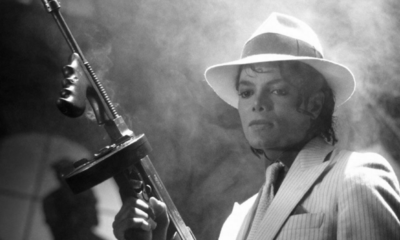

‘Blue Gangsta’ and Michael Jackson’s Fascination with America’s 20th Century Underbelly
Below is a chapter from my book Michael Jackson: Songs & Stories From The Vault, revised for this article. The full book...


Michael Jackson Meets America in Invincible Album Outtake ‘A Place With No Name’
Below is a chapter from my book Michael Jackson: Songs & Stories From The Vault, revised for this article. The full book...

First Amendment Coalition to Support Sony and the Jackson Estate in Fake Songs Lawsuit
There has been yet another twist in the class action lawsuit filed by Californian consumer Vera Serova against Sony Music...



the_presator
May 9, 2014 at 10:14 am
Good news to hear that the single is performing well.
It’s so strange to hear MJ’s music on these commercials. First the phones, now the jeeps, what’s next? xD I don’t mind it , if it helps to promote the album.
About this MJ hologram rumors- I’m not sure. They should make it really perfect to capture his moves.
gg
May 10, 2014 at 5:01 am
hi guys,
i wanted to speak about, aren’t you disgusted because they used a new version instaed of used the 2009 version which is for me far better.For me, it’s just a shame salve 2 the rhythm 2009 version is rocket number 1 hit am i all to think that the xscape version of this song shouldn’t be on the xcape album the 2009 version?
Damien shields about do you think about it ?? no way to try to make them deliver the 2009 version in single. We must do something, this incredible 2009 version can’t go to the trash like this. Please we must try something. A petition, something really.
gg
May 10, 2014 at 5:08 pm
more clearly what do you think about the 2009 version of slave to the rhythm against the xcape one ?
Doc
May 12, 2014 at 12:24 pm
Is it confirmed that the so-called 2009 version is in fact newer than the one they used? Because the vocal track on the “2009 version” sounds from earlier in the process, especially the lyrics to the first verse. In the Xscape version they go “she dances at the crack of dawn and quickly cooks his food” which, to me, sounds further on in a writing process than the repetition of “she dances in the sheets at night” followed by “she dances, cooks his food”.
It could be a newer version where Michael just didn’t remember the lyrics right, but is it actually confirmed?
But your question… I like the simplicity and the energy of the “2009 version”, it has a drive that is a little harder to find in the Xscape version. But I like the vocals better in the version on Xscape, and I personally think they got some of the energy back into the track in the “updated” version, which I think is lacking a bit on the demo from Xscape.
So, well, I like all of them for different reasons!
Debbie
May 11, 2014 at 1:37 am
Jesus I’m I the ONLY person who can tell that THIS IS NOT MJ SINGING AT ALL? It’s so obvious that I don’t get supposed fans not petitioning against using this song at all which would be great if it was Mike singing. Please don’t fall for the hype. It’s NOT Michael’s voice
tmajma86
May 11, 2014 at 2:30 am
Here we go again…. 🙁
chicago
May 12, 2014 at 11:30 pm
Love Never Felt So Good was leaked while Michael Jackson was still alive I do believe. I’ve heard it was possibly leaked by Michael himself. it was written for one of his childhood idols- Johnny Mathis to sing. Michael was proud he wrote this song. Given the vocals on the Xscape version have been manipulated to a lower register and possibly a slower speed, but it IS Michael FOR SURE. some people are silly.
Eric H
May 11, 2014 at 3:29 pm
Debbie, you need to clean your ears out. These songs on Xscape have been available online well before the controversial Michael album, and we’re worked on prior to MJ’s death, and years before that. The vocals are 100% Michael.
Don’t spread BS that ain’t true.
john lomas
May 11, 2014 at 6:37 pm
If anyone wants the album free ill send you the mp3s today I have the full album just message me on whatsapp 07707776016 and ill send
John
Arjun Sanyal
May 12, 2014 at 3:54 pm
Do you have the deluxe edition of ‘Xscape’, or do you just have the regular edition?
chicago
May 12, 2014 at 11:31 pm
better question is does this person just have the demos allready available online?
Doc
May 13, 2014 at 12:43 pm
Well, since the album was released in (parts of?) Europe on the 9th, it would make sense to have the full album.
Mike
May 13, 2014 at 6:42 pm
Well I am sitting here listening to Xscape. Its a better job than Michael. I think Chicago and Blue Gangsta could have developed and been made into songs in same league as Beat It or Give In to Me if MJ was around to finish them But the great man is no longer with us so we have to settle for half finished (by mjs standards ) tracks. If Michael was alive you would have strings in the right place to enhance or flavour the song. While listening to Blue gangsta I thought “oh they should have had strings in this section to emote the song more ” or thinking that a certain track just ended a bit too abruptly. I never found myself thinking like that for any of Michaels albums until Dangerous where everything was in the right place, nothing was over done. Over all this is good album. The sonic is poor. No involvement from Bruce Swedian I notice. His vocals, especially backing vocals are drowned out in some songs. The power in his songs comes from his voice but the way this album has been mixed, his vocals sound like he was singing with his back to the microphone. The music on Do you Know where your Children are sounds a bit too telephone bleepish, very crap production for what could have been a brilliant track. It sounds like a club remix and should really have had a strong electric guitar. My only hope is Quincy Jones produces his next album. I hope this album is promoted properly, with a video of a CG MJ. I hope Sony dont kill this album by releasing like they did with Invincible. I still hate Sony for the way it destroyed the Invincible campaign. It feels more Michael Jackson than the Michael Album
Randi
July 23, 2016 at 4:29 pm
Jerry R. Lowe was admitted to the California Bar in 2004 after graduating from the Claude W. Pettit College of Law at Ohio Northern University. During law school, Mr. Lowe was privileged to serve as an extern for the Honorable Evelyn Lundberg Stratton, justice of The Ohio Supreme Court, as well as clerk for one of Oho8&#i217;s finest bankruptcy firms. He has hands-on experience in , ,.
Lorde Billboard Music
May 19, 2014 at 11:37 am
I’m just very inspired with your crafting expertise since efficiently like with the dwelling with your weblog. Are these claims some sort of given topic or even does one modify the item all by yourself? In any event . be the top quality crafting, it truly is exceptional to look a pleasant site exactly like it nowadays.